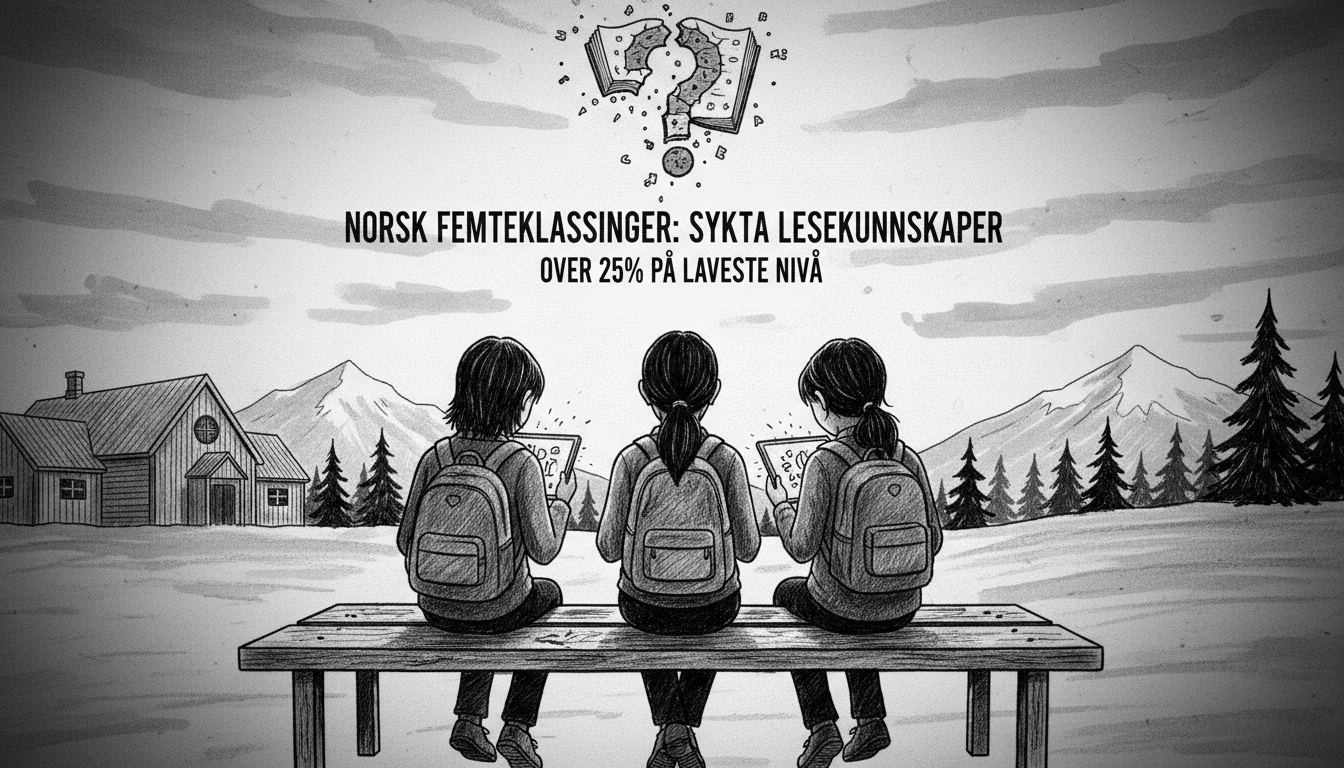Norwegian fifth graders continue to show worsening reading abilities according to recent national test results. More than one in four fifth grade students now performs at the lowest proficiency level. Reading skills among Norwegian ten-year-olds have steadily declined over recent years.
The national assessments reveal a troubling trend in basic education. Over 25 percent of fifth grade students now read at the most basic level. This represents a significant portion of the student population struggling with fundamental literacy.
Education experts express concern about the long-term implications. Strong reading skills form the foundation for all future learning. Students who fall behind in fifth grade often face challenges throughout their academic careers.
The decline appears consistent across multiple testing periods. Reading proficiency has decreased steadily since the most recent comparative data became available. This suggests the issue requires immediate attention from educational authorities.
Norway's education system typically ranks among the best globally. The country invests heavily in public education and teacher training. These results therefore raise questions about what might be causing the decline in core skills.
Several factors could contribute to the reading proficiency drop. Digital distraction represents one possible explanation. Children today spend more time with screens and less time with books. Changing reading habits in families might also play a role.
The Norwegian school system emphasizes student well-being and comprehensive development. Some critics argue this approach might come at the expense of core academic skills. Others maintain that well-rounded development ultimately supports better learning outcomes.
Education officials face pressure to address the declining results. Possible solutions include increased focus on reading instruction and teacher training. Parental involvement in children's reading habits might also need reinforcement.
International comparisons show similar trends in other developed countries. Many nations report declining reading scores among elementary students. Norway's situation reflects broader challenges in modern education systems.
The reading proficiency decline could have economic consequences. Strong literacy skills correlate with better employment prospects and higher earnings. Addressing the issue now might prevent future workforce challenges.
Educational researchers recommend several approaches to reverse the trend. More individualized reading instruction could help struggling students. Increased library access and reading motivation programs might also prove effective. The situation requires coordinated effort from schools, families, and educational authorities.

